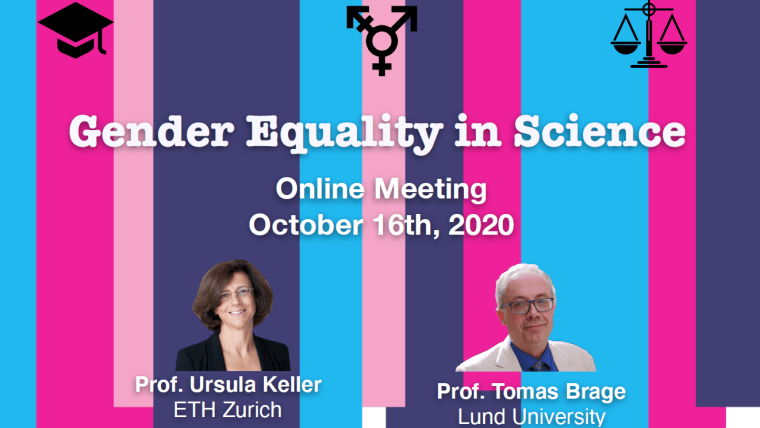
Prof. Tomas Brage, Lund University: "What does gender have to do with Physics?"
Physics is often seen, by Physicists not the least, as an objective Science and we believe we are surrounded by a “culture without culture”. At the same time our history, class and board rooms are dominated by men. This is a paradox that should awaken the curiosity of anyone. In this talk I will give some examples on how you can approach the question on “what does gender have to do with Physics?”. There have been several studies of Physicists and I will combine a discussion of these with some general theory and personal experiences, to paint a picture on how gender transgress Physics, like all other fields. By using the three levels of change introduced by Schiebinger, I refer to studies of e.g. Anthropologists, Sociologists and Psychologists. The bias against women, due to the fact that Physics is stereotypically male, combined with the “myth of meritocracy” could be one key to understand the lack of women in the field. The talk is intended as a translation of results from recent progress in Gender Science to an audience of non-experts in the field, especially people within STEM-fields. The aim is to give some answers to the question in the title, but also to show that this is an extremely interesting and active research field.
Prof. Ursula Keller, ETH Zurich: "Creating a university culture where women in physics thrive"
I am deeply grateful to ETH for providing the education and resources for my success as a professor. Nonetheless, my experience has also illuminated ways in which the ETH system has neglected to make the most of the talent that is available to it. 30 years ago, I simply wanted to be part of the physics community and did not want to emphasize my identity as a woman. I was convinced that was irrelevant. Now, as a tenured female professor with a spouse and children, I look back on my career and find that the issue of women in science is much more complicated than I had initially thought. Don’t get me wrong: I have an exciting, exhilarating and fulfilling job.
Yet, I find myself hesitating to characterize my experience as wholly positive. In my talk I make an attempt with some hindsight to explain some of my personal experiences and to explain what worked for me to excel within a department where I was not really welcome as a woman. Specifically I will also address the questions such as: should you accept a position which was created for a woman, and how to deal with your own gender bias including also as a young woman towards senior women in leadership.
Even with clear legal requirements with regards to equal opportunities, independent checks, balances, and grievance procedures are necessary for sufficient oversight – and ultimately credibility – in the existing university culture. Many of these measures can be achieved efficiently and without significant cost to the university – if the political will and leadership is behind these changes. In the end, the benefits flow to the entire university (including male professors and staff, and any other person or group which could be marginalized) and makes the university more efficient and successful.
Program
- 15:00-15:05 Welcome and introduction to the session.
- 15:05-15:35 Talk I: “What do Gender and Diversity have to do with Physics?” by Prof. Tomas Brage (Lund University, Sweeden)
- 15:35-16:05 Talk II: “Creating a university culture where women thrive” by Prof. Ursula Keller (ETH Zurich, Switzerland)
- 16:05-16:45 Group discussion
- 16:45-17:00 Group conclusions: each group will give a short statement about the topic discussed.
- 17:00-17:10 Break.
- 17:10-17:30 Panel discussion I:
Panelist: Prof. Keller, Prof. Brage, Dr. Aurélie Jost (Head of Imaging Center, Cluster of Excellence “Balance of the Microverse”, FSU), and Karl Michael Ziems (Ph.D. student, Max Planck School of Photonics and Institute of Physical Chemistry, FSU). Moderator: Barbora Maršíková (Ph.D. student, IPHT and FSU) - 17:30-17:50 Panel discussion II: questions from the audience.
- 17:50-18:00 Farewell and acknowledgment.